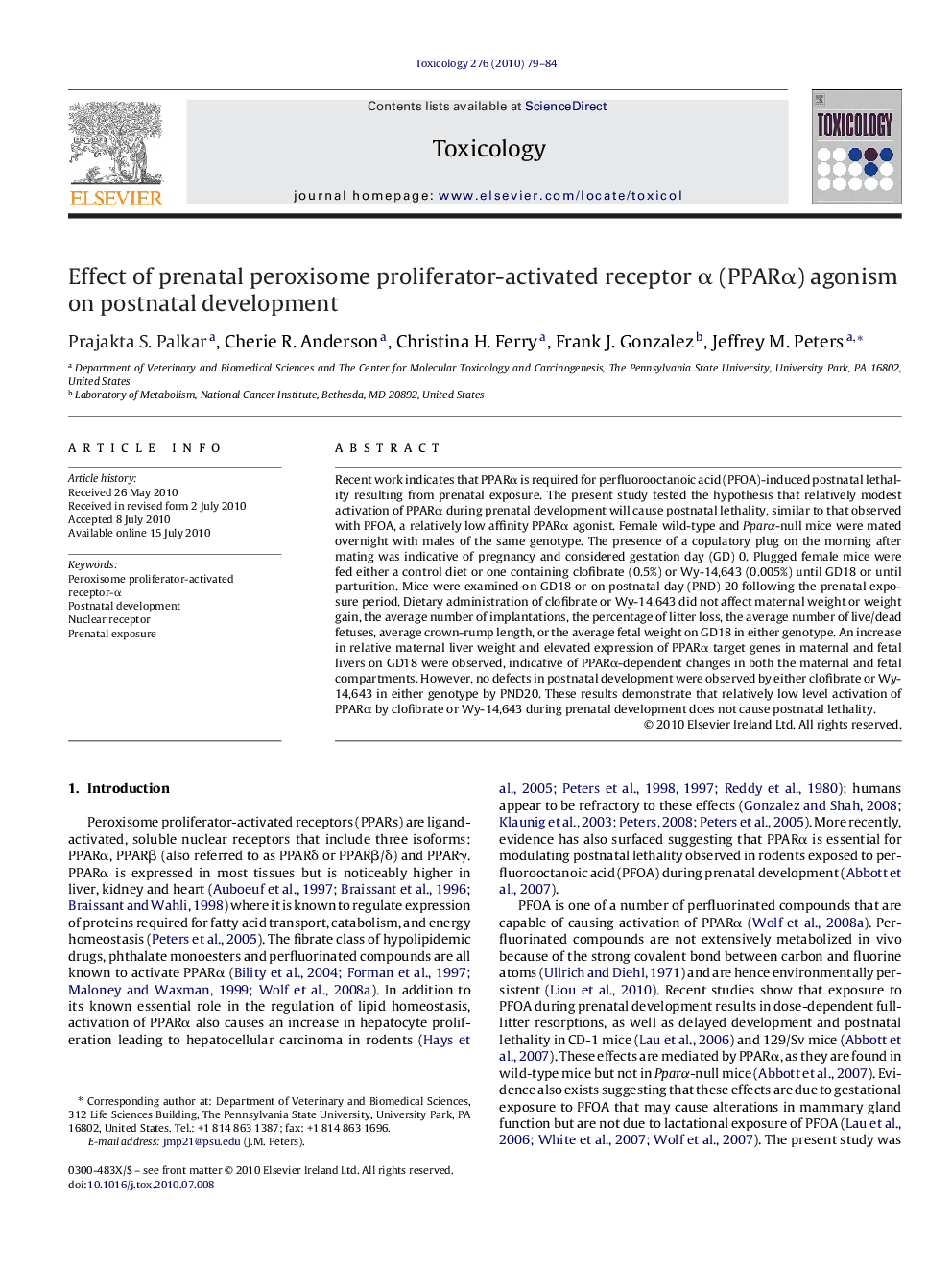| کد مقاله | کد نشریه | سال انتشار | مقاله انگلیسی | نسخه تمام متن |
|---|---|---|---|---|
| 2596330 | 1132521 | 2010 | 6 صفحه PDF | دانلود رایگان |

Recent work indicates that PPARα is required for perfluorooctanoic acid (PFOA)-induced postnatal lethality resulting from prenatal exposure. The present study tested the hypothesis that relatively modest activation of PPARα during prenatal development will cause postnatal lethality, similar to that observed with PFOA, a relatively low affinity PPARα agonist. Female wild-type and Pparα-null mice were mated overnight with males of the same genotype. The presence of a copulatory plug on the morning after mating was indicative of pregnancy and considered gestation day (GD) 0. Plugged female mice were fed either a control diet or one containing clofibrate (0.5%) or Wy-14,643 (0.005%) until GD18 or until parturition. Mice were examined on GD18 or on postnatal day (PND) 20 following the prenatal exposure period. Dietary administration of clofibrate or Wy-14,643 did not affect maternal weight or weight gain, the average number of implantations, the percentage of litter loss, the average number of live/dead fetuses, average crown-rump length, or the average fetal weight on GD18 in either genotype. An increase in relative maternal liver weight and elevated expression of PPARα target genes in maternal and fetal livers on GD18 were observed, indicative of PPARα-dependent changes in both the maternal and fetal compartments. However, no defects in postnatal development were observed by either clofibrate or Wy-14,643 in either genotype by PND20. These results demonstrate that relatively low level activation of PPARα by clofibrate or Wy-14,643 during prenatal development does not cause postnatal lethality.
Journal: Toxicology - Volume 276, Issue 1, 30 September 2010, Pages 79–84